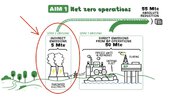Value Collector
Have courage, and be kind.
- Joined
- 13 January 2014
- Posts
- 12,281
- Reactions
- 8,555
You rely on an long international supply chain to fuel your car, at risk of international politics.Indeed, overall, one area seems to be fully missed by the EV pushers: the suitability of EVs to collapsing states/society.
Not to start raising political **** but EVs suitability in China, Singapore or Switzerland vs the same technology and cars in Paris suburbs, RSA townships or LA housing estate
Keep dreaming.. When kms of copper are stolen overnight along the inner rings road of Paris or thousands cars burnt in nye celebrations, what do you think happen to your free access unmanned recharging stations or street charging cables?
EVs increase complexity and reduce robustness of the system, be it technological , social or economic.
Consider yourself to be lucky for the time being in Australia, but do not live in Disneyland /Lalaland
I am convinced EVs will not replace ICE,s nor is the push done for that, no one will have 2 or 3 cars, farm, buggy, tractor in a household switch from ICE to EVs, you might share a fleet of EV ubers/taxis and a few wealthy people..by large, readers of the ASF , will own their own..but that is all you can have for the next 2 decades, and only in countries where society remains strong.
Anyway, hydrogen..which can be different EV is moving ahead..and no-one bothering about synfuels ..that is an area I would invest in on the share market
I charge my EV from solar on my roof.
which system is more robust?



